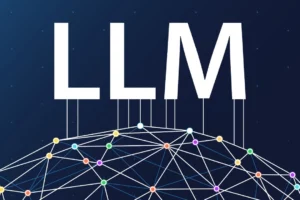The healthcare sector is witnessing a transformative era fueled by Artificial Intelligence (AI). From accurate diagnoses to personalized treatment plans and groundbreaking drug discoveries, AI’s applications are revolutionizing the way we approach medical care. Let’s delve into some key areas where AI is making a significant impact:
1. Diagnosis:
Medical Imaging Analysis: AI algorithms excel at analyzing complex medical images like X-rays, CT scans, and MRIs. They can detect subtle abnormalities with greater accuracy and speed than human eyes, aiding in early diagnoses of diseases like cancer, stroke, and Alzheimer’s.
Predictive Analytics: AI can analyze vast amounts of patient data, including medical history, lab results, and lifestyle factors, to predict the risk of developing certain diseases. This allows for proactive interventions and preventive measures.
2. Treatment Plans:
Personalized Medicine: AI algorithms can analyze individual patient data to tailor treatment plans with higher efficacy and fewer side effects. This approach, known as precision medicine, holds immense promise for chronic diseases and targeted therapies.
Robot-Assisted Surgery: Minimally invasive surgery is gaining traction, and AI-powered robotic assistants are enhancing precision and control during procedures. These robots can also filter tremors in a surgeon’s hands, leading to even greater accuracy.
3. Drug Discovery:
Virtual Screening: AI can virtually screen millions of potential drug candidates, identifying promising molecules with the desired therapeutic properties. This significantly accelerates the drug discovery process, traditionally long and expensive.
Drug Repurposing: AI can analyze existing drugs and identify new therapeutic uses for them. This repurposing strategy leverages existing safety data and knowledge, potentially bringing new treatments to market faster and at lower costs.
The Future of AI in Healthcare:
The integration of AI in healthcare is still in its early stages, but the potential is limitless. As technology advances and ethical considerations are addressed, we can expect even more transformative applications, such as:
- AI-powered chatbots for personalized health coaching and mental health support.
- Real-time patient monitoring using wearable devices and AI-driven analysis for early detection of health issues.
- Development of intelligent prosthetics and robotic limbs that seamlessly integrate with the nervous system.
Challenges and Ethical Considerations:
While AI holds immense promise, its integration in healthcare raises ethical concerns that need careful consideration:
- Bias and fairness: AI algorithms trained on biased data can perpetuate existing inequalities in healthcare access and outcomes. Mitigating bias and ensuring fairness is crucial.
- Data privacy and security: Protecting sensitive patient data from unauthorized access and ensuring its responsible use is paramount.
- Human-AI collaboration: AI should complement, not replace, human healthcare professionals. Building trust and fostering collaboration is essential for optimal outcomes.
Conclusion:
AI is poised to revolutionize healthcare, offering faster, more accurate diagnoses, personalized treatment plans, and accelerated drug discovery. By addressing ethical challenges and fostering responsible development, we can harness the power of AI to create a healthier future for all. Remember, AI is a powerful tool, and its success in healthcare depends on using it ethically and responsibly, with human well-being at the forefront.
















Add Comment